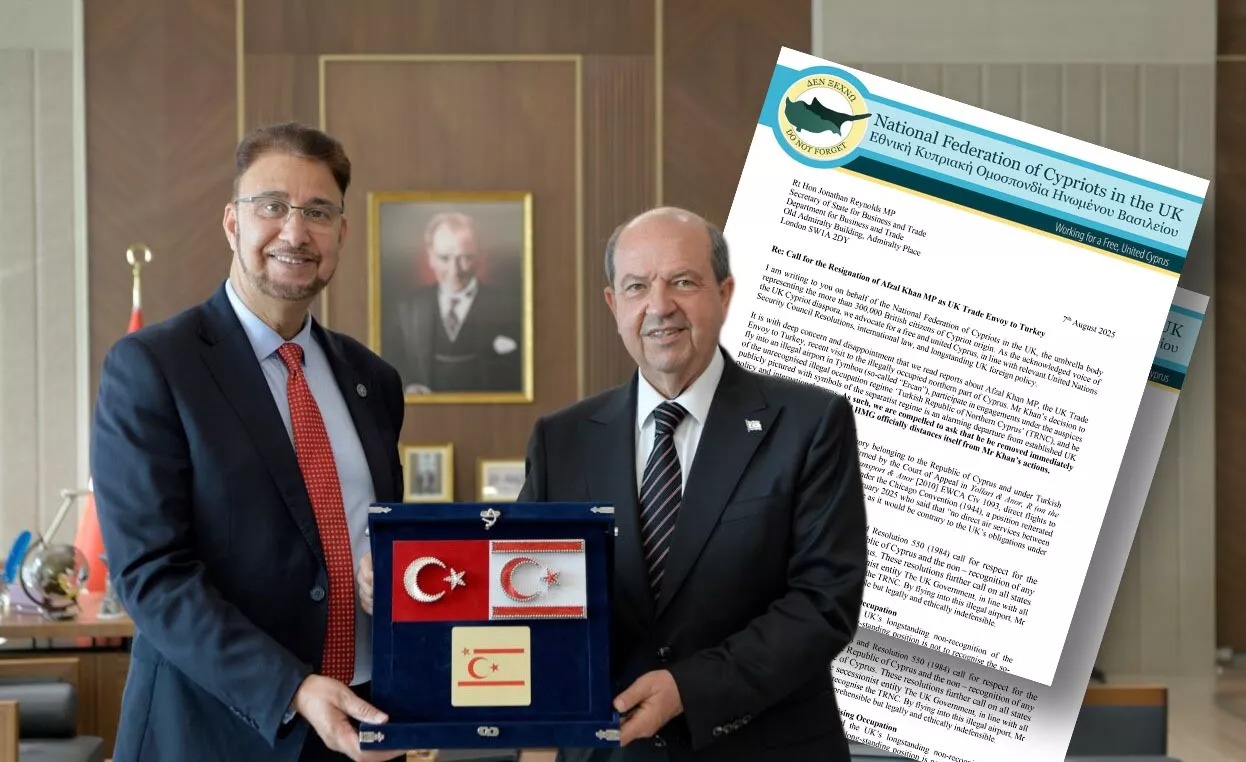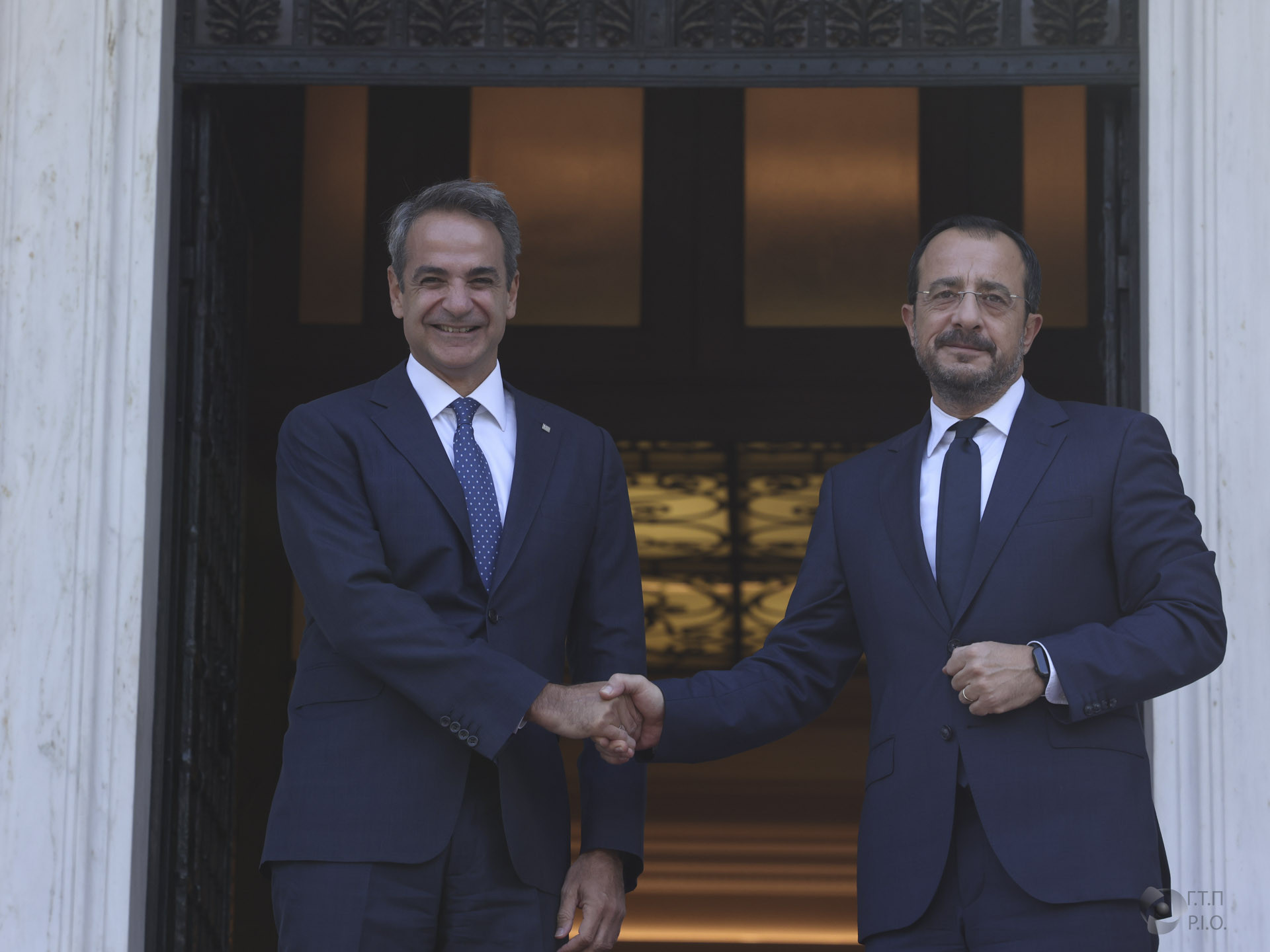Khan resignation – A diplomatic victory for Cyprus
Source: in-cyprus.com
The resignation of British MP Afzal Khan from his position as the United Kingdom’s Special Trade Envoy to Turkey represents a resounding political message that emerged from broader mobilisation by the Republic of Cyprus, the Cypriot diaspora and friends of Cyprus within the British Parliament.
What is remarkable is that for the first time, mobilisation from Cyprus has had a substantial impact and constitutes a major success for Cypriot diplomacy.
Khan’s visit triggered a wave of reactions when he visited the occupied areas via the illegal Tymbou airport, where he was photographed with symbols of the pseudo-state and met with occupation leader Ersin Tatar. This visit, although he claimed it was conducted in a “personal capacity”, was incompatible with his role as Special Trade Envoy and ran completely counter to the United Kingdom’s official policy.
The Foreign Ministry immediately took action to condemn the illegal visit. The reaction from the National Federation of Cypriots in the United Kingdom was also immediate and decisive. In a letter to the Secretary of State for Business and Trade, its president Christos Karaolis demanded Khan’s removal from his position, denouncing his stance as politically objectionable and legally unjustifiable.
It was also highlighted that this act could be interpreted – and was indeed presented by the occupied areas – as indirect recognition of the pseudo-state and undermining of international resolutions on Cyprus.
The Federation’s letter was accompanied by strong reactions from MPs and political forces within the United Kingdom, from both government and opposition.
The Foreign Office moved quickly to distance itself from Khan’s actions, emphasising that the visit had not received prior approval and was conducted outside any official framework.
Ultimately, under the weight of reactions and diplomatic pressure, Khan submitted his resignation, which was accepted.
For the Republic of Cyprus, this outcome is not merely a partial diplomatic success. It represents clear confirmation that coordinated actions by the Foreign Ministry, adherence to international law and mobilisation of the diaspora can bear fruit even when facing challenges from countries like the United Kingdom.
The Republic of Cyprus Foreign Ministry characterised the development as “significant” and emphasised that Khan’s resignation sends a clear message: there can be no tolerance or tacit acceptance of actions that legitimise the occupation and undermine the sovereignty of the Republic of Cyprus.
The announcement also recalled the enduring validity of UN Resolutions on Cyprus and called on the international community to show zero tolerance towards those who encourage or tolerate illegality.
The occupation leadership, meanwhile, rushed to react with aggressive rhetoric, accusing the Greek Cypriot side of “isolationist policy”.
Ersin Tatar characterised the pressure on Khan as an “extension of the tyrannical Greek Cypriot mentality”, thus reflecting the familiar line of denying the reality of international law and UN decisions.
Khan’s resignation, however, functions as a valuable precedent: it shows that there are limits to tolerance even from governments such as that of the United Kingdom.
It strengthens the Republic of Cyprus’s position at critical junctures, particularly ahead of future initiatives for resuming talks. Crucially, it restores a framework of principles in which the involvement of state officials in violations of international law cannot remain unpunished.
The Khan case demonstrates the power of political and diplomatic consistency, resolute stance and joint action between the Republic of Cyprus and the organised diaspora. It serves as a reminder that when the voice of legitimacy is raised in coordination, it can be heard and produce results.
P.S. Khan’s resignation can also be interpreted as an indirect response to those who questioned the reactions provoked by MEP Fidias Panagiotou’s visit to the office of occupation leader Ersin Tatar.
The original article: belongs to in-cyprus.com .



